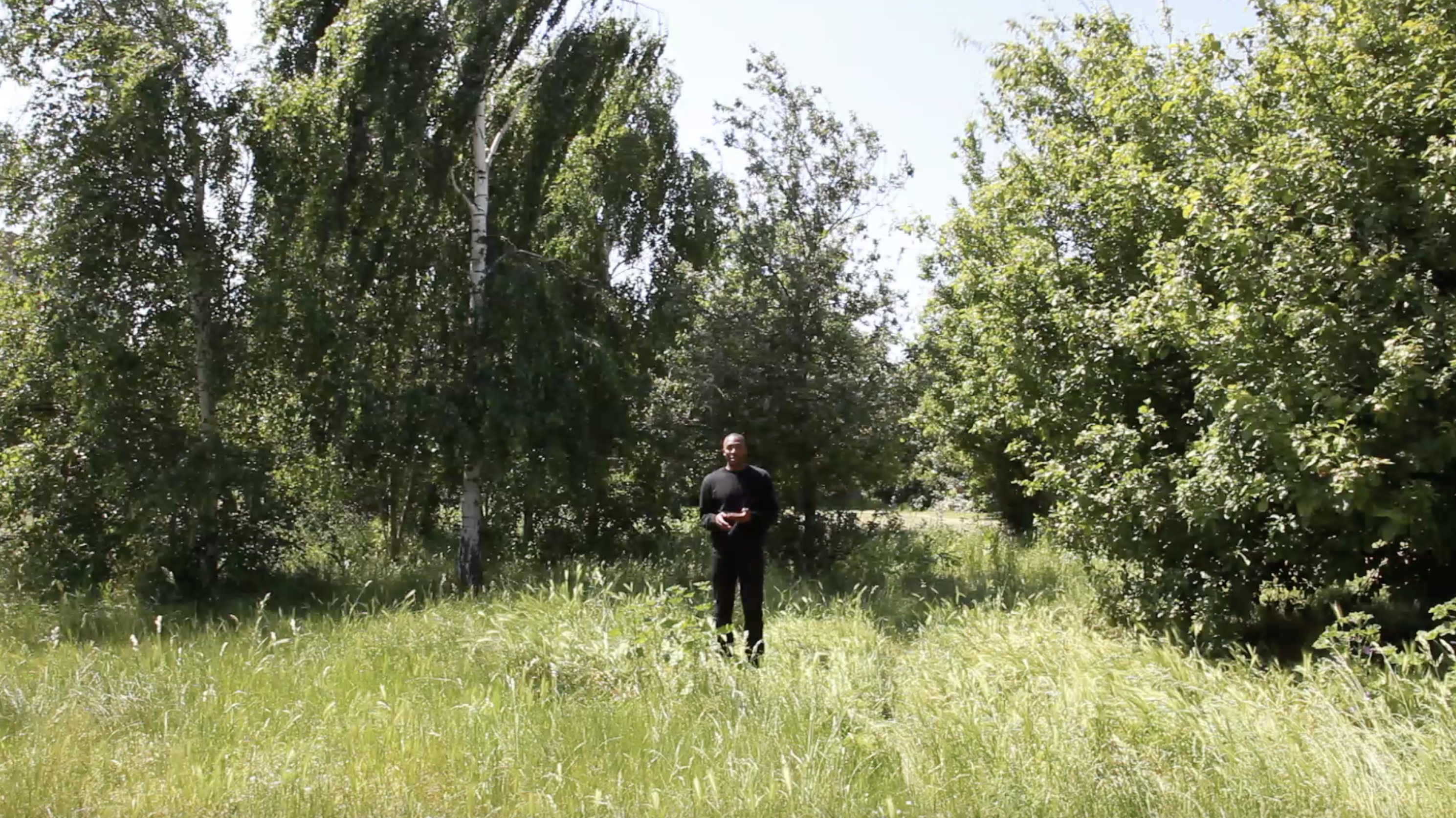James Massiah: Departures

London-based poet and musician James Massiah was commissioned by CIRCA to write the following text and poem titled ‘Sea Song’ in response to Frank Bowling’s CIRCA 20:23 commission ‘Arrival’. In collaboration with Black Cultural Archives, a curation of public submissions and interviewed responses will form part of an extended film presentation on Piccadilly Lights to coincide with Windrush Day (22 June), marking 75 years since HMT Empire Windrush arrived at Tilbury Dock in June 1948.
- I was more upset by the news that Sister Harris had passed away than I had been about all of the other recent deaths I’d been informed about in the extended family. I really loved Sister Harris. She was one of many women named Joy at our church in Balham, but she deserved the name more than any other. She was also close to my grandma, Carmen, who’d died a few years earlier at a nursing home in Margate after leaving London and having left Barbados when the symptoms of her dementia first started to show.
- My family talks quite openly about death. I’d say we talk quite openly in general, but perhaps owing to my parent’s firm belief in a life hereafter, it comes up maybe more frequently than it might do in other families. I’d also say we were quite well-humoured, within the nuclear family of my sibling and my mum and dad, but also beyond that, into the aunts, uncles and cousins, also on both sides. We laugh a lot, and I can remember each of my grandparents laughing in their own idiosyncratic ways. I can even remember Sister Harris laughing with Grandma Carmen. I think there was some joke told about their times in hospital.
- As I think about it, there are no remaining grandparents on either side of the family. The Bajan side or the Jamaican side. I recently met someone over the weekend with Bajan ancestry, and we spoke quite fondly of our shared cultural heritage. We discussed the culinary delights of cou-cou, and she filled me in on the latest developments in contemporary Bajan music (“sort of like dancehall but more tinny and percussive with a heavier leaning towards soca or maybe like calypso, you know?”). She said her parents were young at heart and then told a story about her grandma, I think in relation to a question I’d asked about whether or not she felt she was under pressure to have children for want of grandchildren by her parents.
- That happened to me not long ago, the pressure. Not from my parents (although they’ve definitely had their moments when the conversation has come up) but from friends. At a birthday party in the park where, friends of mine, peers, and many who had recently become parents made enquiries into my plans for parenthood and then interrogated my reluctance. “I just don’t think I have the paternal instinct”, I said. So many counter-arguments were made. One that sticks out now is, “But the older generation is dying! We’re not getting any younger; who’s going to continue on your legacy?”.
- I was with a different set of friends the following weekend, no babies but dogs aplenty, and the topic came up again. “We’re here to procreate; it’s our genetic destiny. To pass on our DNA before we die,” one friend said. I was somewhere else. Partly because I’d been up early that day and was starting to lag, but also because I was thinking about another recent passing, of someone from my generation.
- A friend of mine recently hung themselves. It was such a mystery to me as to why until I’d caught up with another friend and spoken about how they were doing before they’d died. We’d actually had plans to meet up in the near future, but I suppose we won’t now in the wake of their departure. I found myself going back through old social media accounts of theirs, trying to put the pieces of their life together in a way that made sense, and then saw old photos of the two of us at parties and out with other friends. I told my mum about her death, and she expressed her sadness for my friend, her family and then for her parents. We spoke about some other recent deaths and the circumstances under which they occurred. We spoke about Grandma, the Caribbean, my friends, and my love. We spoke in the kitchen while I was boiling yam. We spoke about music. We spoke about Sister Harris.
- “Life is hard, death is easy”, but not for the living who have to continue on without the ones they loved who had died. At funerals, we tell stories, sing songs and read poems to comfort one another. In life, we do, too, to mark special moments or to capture people and times – to immortalise them.
- It occurs to me that soon there will be no one left from that generation of Caribbeans who came en masse to work and build new lives here in the UK. I’m thankful for the things that were done by those that came before to open doors for me and others like me to do what we do. There are new challenges created by new developments in technology and politics, and society in general, but the things we learnt from them will help us to continue to figure out new ways through the new obstacles.
- I’ll miss Sister Harris. I’ll miss my friend too.
James Massiah is a poet and musician from South London. He has already given readings of his poetry at the Tate Modern, The Southbank and the Houses of Parliament and has received commissions to produce work for the BBC and The Guardian. Massiah is also a founder of the A & The E, a platform for the discussion of the arts and philosophy – curating regular poetry and music events across London.